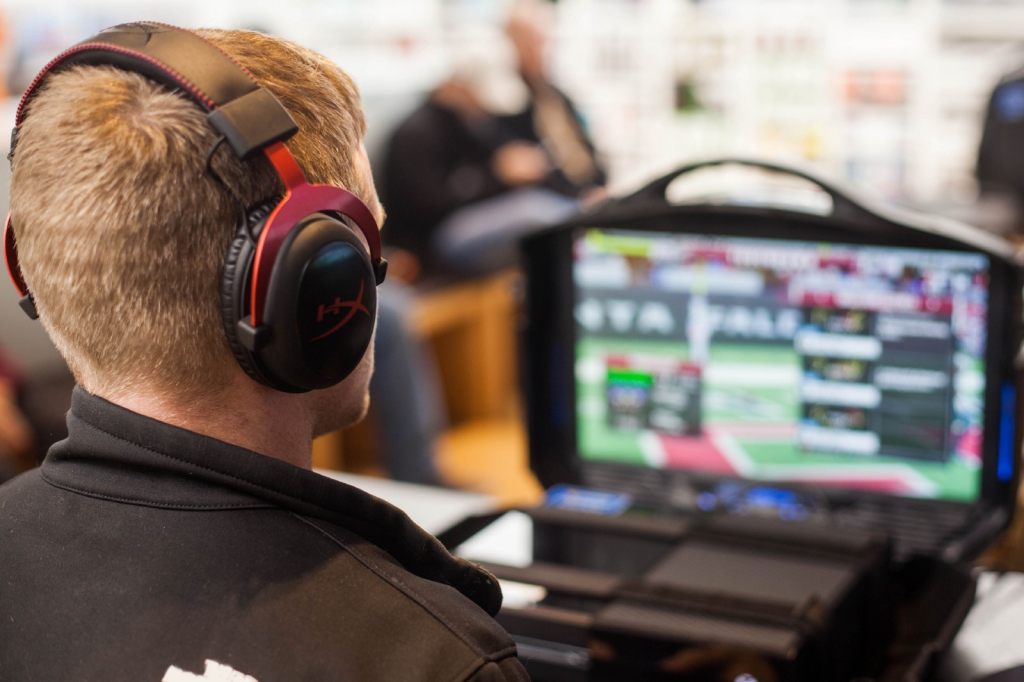
“Are you not entertained,” asks the general-turned-gladiator Maximus in Ridley Scott’s 2000 film Gladiator. The story shows how, since time immemorial gaming has provided entertainment for the masses. We love to compete and watch others compete.
Admittedly, we are no longer entertained by our fellow human beings killing each other and thankfully these days confine such activities to the virtual world of video games.
Computer gaming currently has 2.2 billion people in its thrall and is the cutting edge of innovation in the space Outside of the games themselves, the the world of esports is growing at an explosive rate.
Why Esports are Booming
Around 10% of current gamers are involved in esports so there is plenty of room for further growth, and it is gaining popularity especially in Asia. In fact, the esports sector is growing at a rate of 33% a year, with esports viewers expected to watch a massive 6.6 billion hours of video in 2018, and with services such as Twitch gaining in popularity.
The most obvious reason for the burgeoning popularity of esports is that there’s money to be made. The gaming industry generated revenues of $109 billion, according to NewZoo’s 2017 report on the industry, with esports accounting for less than 1% of it. 1% might seem small in percentage terms but is worth in cash approximately $720 million in an emerging scene where players typically don’t expect to be rewarded for enjoying themselves while playing games they love. As more people hear about esports — and the money to be made — more hop on board..
A breakdown of revenue shows roughly $40 million is paid out in player compensation and $100 million in prize money, substantial incentive for avid gamers to look into how they can make money from their skills.
For those who find it difficult to make much headway on the leaderboard for your favorite game, why not check out how the greats of the game play by becoming a spectator.
From Seoul to Shanghai and increasing in the US and Europe too, arenas and stadiums are getting filled out by video gaming fans watching the best go head to head.
Leading games genres such as real-time strategy (RTS), first person shooters (FPS) and multiplayer online battle arena (MOBA) are all well-suited to esports, with MOBA being the most popular, accounting for 58% of watching time. Drilling down further still, team play is gaining a following, with a host of top games providing the perfect space for collaborative gaming. League of Legends, Dota2, Overwatch and Counter-Strike are particular favorites.
The most far-sighted of the games studios are taking notice, with the games mentioned above now including a spectator mode and support.
Build the Infrastructure and The Crowds Will Come
Setting up a team and managing it is not all that straightforward precisely because the sector is so new.
How to find the players for a team, work out which tournaments to enter, hire a coach or organise practice bouts? There’s a lot to consider.
Also, once you have organized a team, it now has to be managed. A professional sport requires professional management. Just as with baseball or any other pro sports, a team needs to be coached, the game play broken down and analysed and the team itself constantly refreshed with new talent, which iseven before getting started on the business side of the industry.
With fraud a continuing issue and with no unified leagues, transfer windows, player unions, and few clubs, blockchain technology presents an efficient way of surmounting these barriers.
Blockchain As a Solution
Building a decentralized platform to manage the competing demands of a team — and to get one off the ground in the first place – is what a blockchain start-up called DreamTeam is aiming to achieve by bringing under one roof all the resources and tools a team might require as well as the other aspects of the industry such as sponsors and game developers. Being able to manage prize money distribution, transfers of players, rights management for media, advertising and sponsorship and the management of the teams themselves all in one place would undoubtedly be a draw for many.
Dreamteam’s vision sees the platform as a place where the different parts of the industry can connect, where the amateur can aspire and learn how to become a professional, making it easier for those just starting out to advance to the next level.
The approach seems to be working judging from the success of the betalaunched at the end of last year. The platform already has 250,000 users and is growing at a rate of 36% a week. Most users are based in the US, Europe and the Commonwealth of Independent States (the former Soviet Union) at the moment with its goal going forward focused on breaking into Asia.
They have raised $6 million in their presale and Mangrove Capital, a major VC firm has invested in them as well. Currently, they are in their tokensale stage, and with a beta product gaining traction, DreamTeam seems well-positioned to succeed.
Another project launched last year by Enjin is deploying blockchain technology to concentrate on tokenizing the creation, purchase and sale of skins and other virtual goodies, an increasingly popular activity in the gaming world.
Enjin also lets gamers list their favorite games platform as a “Trusted Platform” inside the Enjin Smart Wallet, where the various game tokens can be traded. The smart wallet is synchronized with the user’s Ethereum address and the underlying smart contract is powered by the Enjin Coin (ENJ). The Enjin Smart Wallet can also be imported into the full-blown mobile crypto wallet the startup released in January, confusingly called the Digital Smart Wallet. The mobile wallet has been praised for its implementation of a two-layered encryption approach and lets users store a large number of top coins, including Bitcoin, Litecoin and all ERC-20 tokens.
Yet another esports project is Unikrn, which began its mission already back in 2014 with a strong betting focus, but has since looked to expand its footprint to address opportunities in the wider esports ecosystem. It recently signed a deal with ChallengeMe.GG, a German-based startup that provides a matchmaking service, which, as we have seen with DreamTeam, is a key element for a company to get right if it hopes to make a success of its gaming platform.
There will no doubt be many more decentralised solutions being touted for esports as this brand new sport grows.
Esports relies on cutting-edge technology to exist so, given that pedigree, it is not too surprising to see the sector at the forefront of blockchain developments. This is an exciting arena with gaming of all kinds eclipsing the movie industry as the premier form of entertainment in developed economies, and with a lot of exciting developments yet to come.








